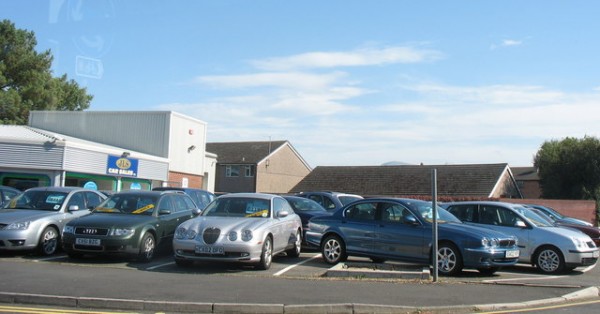Car depreciation is unlike many other types of depreciation in the world. For example, an owned asset such as a building may incur straight-line depreciation or double-declining depreciation over time, depending on how the company owning the asset deals with the tax incentives offered at different points in time.
Cars depreciate based on a few factors, but most depreciation comes from the market and potential buy-back price people are willing to pay. Some vehicle manufacturers offer better buy-back prices for their vehicles due to the infrastructure they have (potential future buyers to whom they can sell the car) while others always lose money on used cars.
The market is subject to factors such as car model and make, market saturation, perceived value of car quality, and market desire for the vehicle. Below are just a few of the main factors that determine how fast a car depreciates.
Driving Off the Lot –
The famous line, “Your car loses value the minute you drive it off the lot,” is definitely a true statement. To what extent is a factor that changes given the vehicle and potential future condition of the car, but as a rule of thumb, all vehicles immediately lose value when you finally take them home for the first time. What does this mean? Basically, if you buy a car one day and attempt to sell that same car back to the dealership the next day it will be worth thousands of dollars less.
It’s just the nature of the beast. Over the course of three years (given you’re in a lease) your car may have depreciated over $10,000 from the MSRP.
Here are the Averages –
A new car loses approximately 10% of its value the moment you leave the dealership parking lot. From that point forward, your car will depreciate anywhere from 5% to 10% a year for the next five years. After five years your car is most likely approximately 40% less than what you paid for it. If you started with a used car to begin with the numbers are even worse – used cars lose approximately 15% to 20% value each year from inception.
For a new car costing $30,000.00, you’re paying approximately $2100.00 a year to use that car, which equals about $175.00 a month. At first glance this doesn’t seem too bad, but remember that you didn’t pay for that $30,000.00 car in cash but on terms of an interest loan. Therefore, the car companies are making a killing off you and everyone else.
In addition, chances are you won’t find a buyer after three years that will be willing to pay the full depreciated value so there is an extra diminishing return associated with reselling. This is why it’s important to know what cars hold value in the market.
Cars that Hold Value Well –
Toyota is often referred to in recent years as “The Resale King” because of the resale values associated with many of its models. For example, the Toyota FJ Cruiser has a resale value at 36 months of 81%, which is well above the industry average. Five other Toyota brand are in the top ten for 2014 and all resale after 36 months for more than 60% of MSRP. In addition to Toyota, Chevy (particularly the Camaro), Jeep, and Honda round out the top ten this year in resale value.
If you’re looking for a car to buy in the near future, research vehicles which hold high resale values over a period of 3-5 years.
Wholesale vs. Retail Prices –
My father was a car salesman for 40 years and bought used cars wholesale at auction, flipped them, and sold them higher at retail. Depreciation doesn’t take into account retail prices or taxes and fees due at signing. That money you can kiss goodbye when you sign on the dotted line. Part of obtaining a good resale value is not paying too much for the car at inception, as the market does not care what you paid; only what the car is worth three to five years down the road.
Ample research is important when purchasing a car, or leasing may be an option. When you lease, it is the dealership that must worry about what to do with the car after three years.
Know the Market Conditions –
Resale values, unfortunately, are like the stock market, all the analysis in the world still won’t ensure a great resale value. Market conditions are subject to other environmental factors that affect overall perceived value. For example, if you buy a truck with low MPG, and three years later gas is spiking at $5.00 a gallon, the resale value suddenly drops far below what normal market conditions would otherwise dictate. Anticipate future conditions when purchasing.
Matthew Hall is a resident of Plano, Texas who enjoys doing car restorations on the side. For car work he just can’t handle himself, he highly recommends Linear Automotive Repair and Body Shop. You can find out more about Matthew by visiting his Google+.



